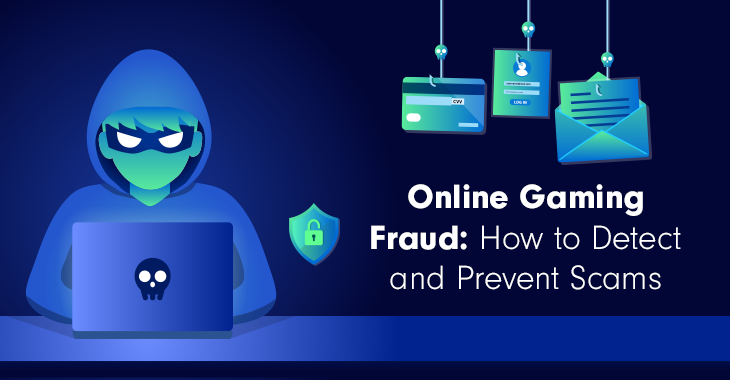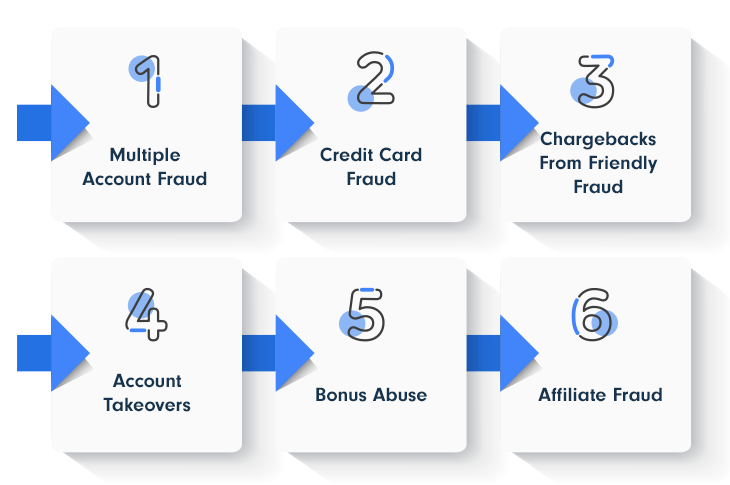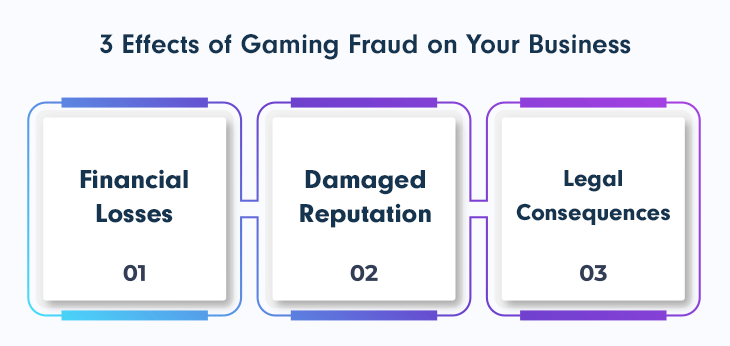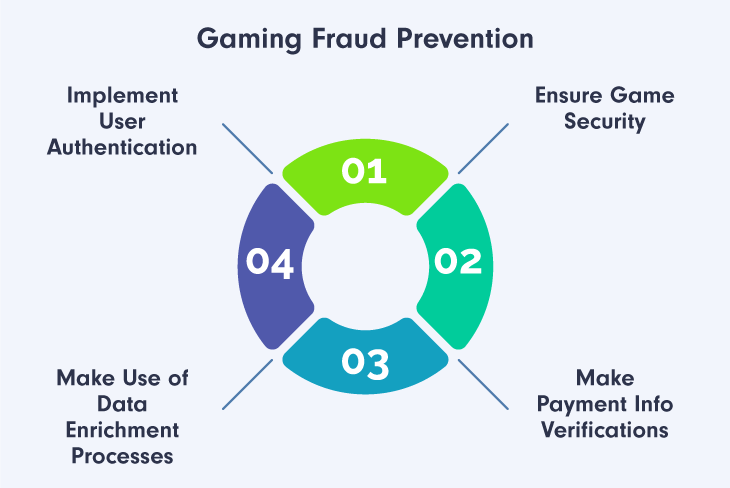
Online Gaming Fraud: How to Detect and Prevent Scams
The world of online gaming has skyrocketed in popularity in recent years, turning from a nerdy hobby to a multi-billion dollar industry.
With 3.9 billion online gamers worldwide, it’s no wonder that the industry’s current market value has now reached $220.46 billion. Indeed, online gaming is a big business that is not going away!
Unfortunately, an industry this successful doesn’t only attract game developers, but fraudsters as well. Gaming fraud levels have spiked recently, making it quite challenging for businesses that sell video games online to grow and expand.
We’re here to explain all the ins and outs of online gaming fraud to help you improve your business processes, keep gamers safe, and, ultimately, grow your video game platform.
What Is Online Gaming Fraud?
Online gaming fraud refers to any fraudulent activity targeting online gamers and taking place within dedicated platforms.
Fraudsters are drawn to the rapidly growing online gaming industry because it offers significant rewards. From constant in-game purchases to a growing number of subscriptions, video games are certainly a magnet for online scams. Furthermore, the diverse range of gaming cyberattacks poses unique challenges for developers in their fight against fraud.
As high-risk fraud is growing, and scammers are constantly developing new methods to trick users and steal login credentials, it has become critical for gaming businesses to ensure they can detect and prevent scams.
The 6 Common Types of Online Gaming Fraud

1. Multiple Account Fraud
Multiple account fraud, or multi-accounting, is a common type of online gaming fraud where a fraudster uses multiple accounts at once to benefit themselves in a game. They’ll often use emulators, virtual machines, and even residential-like IPs, such as SOCKS5 proxies or mobile networks, to leverage fresh IP addresses.
This technique is used frequently in online gambling. For example, a fraudster will join a poker game from multiple accounts, making themselves far more likely to win the game. This is a form of what is called chip dumping.
Fraudsters can manipulate game results and force other legitimate players out of the game. Additionally, they can make easy money off the advantages they gain by accessing the game from multiple accounts.
2. Credit Card Fraud
Often called "true fraud," it occurs when your credit card details are stolen and used illegally in different ways. For instance, hackers can create new accounts, quickly build up the account's value with that credit card, make in-game purchases and skins, and then sell the account to a trading site, pocketing the money. These accounts can sell for anything between several hundred to thousands of dollars.
If all of that isn't bad enough, stolen financial information is often bought and sold on the dark web, creating a real risk for gaming businesses. Additionally, stolen credit cards can be attached to newly created PayPal accounts. Unauthorized transactions will undoubtedly lead to chargebacks, which in return cause significant monetary losses.
Moreover, apart from fraudsters, your enemy in this situation is the number of chargebacks generated by their actions, which have severe and costly consequences for the well-being of your business.
3. Chargebacks From Friendly Fraud
Chargeback fraud, also known as friendly fraud, occurs when a customer disputes a legitimate charge with their bank and asks for a refund.
They can do so for several reasons:
Unauthorized purchase
Not receiving the order
Unsatisfying goods or services
Ironically, chargebacks were created to protect the customer but are now often used against the merchant itself. It is challenging to determine which claims are legitimate or fraudulent.
A business wants to provide good customer service to legitimate customers, but as a result, often loses revenue to this type of fraudulent claims.
4. Account Takeovers
Expected to reach , account takeover fraud is a serious threat to the gaming industry.
These attacks involve fraudsters hacking into existing accounts using stolen credentials or automation software to crack valid account details. This is sometimes also known as “credential stuffing” and can lead to hackers gaining access to multiple accounts.
Once the account is hacked, fraudsters can:
Either sell that person’s in-game items for in-game currency, or they sell the entire account for cold hard cash.
Use a hacked account to spread spam and links to phishing sites, withdraw funds, and change account information.
Utilize the user’s sensitive information for more complex identity theft.
The victims of this fraudulent activity are often gamers who have spent hundreds of hours and many dollars leveling up in the game. The buyers of accounts are often people who are new to the game or not as advanced and are looking for an easy way to win.
5. Bonus Abuse
Bonus abuse is a more basic scam closely linked to multiple account fraud. A fraudster will open multiple accounts to take advantage of special offers.
These could be referral programs for new customers or specific in-game bonuses like coupons or the ability to purchase rare items. They can then sell the item, withdraw the funds from the platform quickly, and abandon the accounts before the gaming platform even manages to identify the fraud and close the account.
It’s free money for the fraudsters and can considerably cost gaming businesses lost revenue and waste marketing budgets.
This creates a complex situation where gaming businesses need to protect themselves from fraudsters with identity verification, which could create too much friction for legitimate users, who might want to take their gaming elsewhere.
6. Affiliate Fraud
The gaming world relies heavily on affiliates for effective marketing. But this comes with its risks. Affiliate fraud refers to any deceitful action taken by a third party to derive personal benefit from marketing techniques such as pay-per-lead (PPL) or pay-per-click (PPC) campaigns.
Affiliates can utilize marketing techniques through multi-accounting, bots, and more. For example, they can exploit multi-accounting so that you’re paying out rewards to non-existent players, or they are being paid for bad leads, including players who will never spend money on your gaming site.
How Does Gaming Fraud Affect Your Business?

Financial Losses
Fraud can set a chain of events in motion that leads to significant revenue losses for game developers, stunting or even crippling their businesses. Money that should be flowing into your company from your users can end up in the hands of fraudsters, unrecoverable and undetected.
Chargeback Losses
Chargebacks can be costly and time-consuming, especially when they are triggered by fraud. Gaming companies must investigate suspicious transactions, refund customers, and pay chargeback fees.
This can become an operational and financial burden, and businesses may even be put on the suspicious activity lists of banks and card companies, which could lead to them losing the ability to process payments.
For example, Visa and Mastercard's claims resolution processes are becoming more stringent, and online payment providers are increasing processing fees or even suspending and dropping platforms that generate high numbers of chargebacks.
While it is impossible to eliminate friendly fraud altogether, businesses can learn how to win chargebacks and minimize the overall impact on their finances.
Squandered Resources
Affiliate fraud involving third-party websites and bonus abuse can damage your marketing ROI and waste your time and money on bad leads. Both types of fraud can waste the resources you spend on attracting and welcoming new players.
Once your game is associated with fraud, you'll need to invest heavily in reputation management. Why not implement fraud detection and prevention instead, and redirect those funds to game enhancement?
Shrinking Player Base
Gaming users invest hundreds of hours into their characters and gaming experience, making their accounts a prime target for online gaming scams.
Game companies must create a fun and safe gaming environment, or players will quickly abandon it. High fraud rates erode trust and loyalty, damaging the business financially.
Damaged Reputation
You don’t want your game to be associated with fraud for several reasons. Gaming is all about communities built around online games in the marketplace.
And with the industry growing and changing so fast, the last thing you want is to be seen by users as an unsafe platform or, worse yet, by fraudsters as an easy target. You can imagine the profit losses damaged reputations are responsible for.
Gamers are heavy users of chat forums and review sites and aren’t afraid to use them to complain when they become victims of fraud. Your users will quickly abandon your game and continue to spread the bad news, leaving your reputation tarnished.
Legal Consequences
Although the online gaming industry isn’t heavily regulated in most countries, stricter regulations will likely come down the line from government agencies soon.
You could end up with severe penalties and fines if your game is found to be harboring fraudsters and creating an unsafe environment for users.
Not only that, but when faced with an increased number of chargebacks, you could be labeled as high-risk, and this could lead to serious consequences like account termination, or even permanent blacklisting.
You must get out in front of this and strengthen your business against fraudsters. This, combined with greater transparency and accountability, will ensure that the regulators don’t come knocking on your door in the future with hefty fines for non-compliance.
10 Ways to Prevent and Detect Gaming Fraud
Gaming Fraud Prevention
Implement User Authentication
Keeping fraud as far away as possible from your game starts with separating good users from fraudsters.
To do that, you need to have protocols in place to make sure gamers are who they say they are:
Add Captcha: Used as a verification mechanism to separate human users from bots, a CAPTCHA is a test that users need to complete when creating a new account.
Use Multi-Factor Authentication: These security protocols require the user to provide additional pieces of information to verify their identity. Two factor authentication links, codes sent to phone numbers, fingerprinting, or facial recognition are some options worth considering.
Consider Document Verification: It is very important to make sure that when requiring the users to upload documents to confirm identity, your software can liveness.
Verify User Data: Identity verification services look at a user’s IP address, geolocation, email address, and other data

Ensure Game Security ( firewall, SSL, software updates, 8 security audit questions)
First, you need to ensure that your users are safe when enjoying your platform.
Here are some steps you can take to add the necessary layers of security:
Add Firewalls: These mechanisms oversee your website’s traffic and filter out bad traffic, which also includes bots.
Use SSL Encryption: By implementing these protocols, you are making sure that all sensitive information like credit card numbers or login information are passed on securely.
Constant Software Updates: Misconfigurations and system weaknesses are among the most popular explanations behind cyber attacks. By performing regular software updates, you are fixing issues and preventing fraudsters from entering your system.
Perform Security Audits: Stay ahead of fraudsters and scammers by conducting regular audits on your security framework. This will help you identify any weaknesses before the criminals do.
Implement e-Invoicing: Safeguarding your customer data is possible through e-invoicing, as emails are secure and private networks or protocols like AS2, FTPS, web services, VANs.
Use Data To Enhance Security: The more data you acquire, the better you can detect and stop fraudsters. Keep your security, payments, and identity data up to date and leverage it to fight fraudsters. Always use AI and ML technologies for their huge data harvesting capacity.
Make Payment Info Verifications ( CVV codes, AVS checks)
During the checkout phase, it’s very important to add certain steps to ensure that the cardholders are, in fact, the ones making the purchase:
Request CVV Codes: Because CVV cannot be stored, fraudsters cannot obtain them from data breaches. Therefore, they will not be able to provide them.
Implement AVS checks: The Address Verification Systems are a common method to check the validity of an order by comparing the billing address used in the transaction with the cardholder’s information from the issuing bank. These verifications come in handy in reducing unauthorized payments and are used in the chargeback dispute process.
Make Use of Data Enrichment Processes
Another way to enhance security is through data enrichment processes ‒ which means you are tracking beyond just a user’s identity information:
Monitor User Behavior: You can monitor device fingerprints and email profiles and conduct phone and IP analyses. Legitimate users would usually use an email address that is older and linked to other apps or social media. The system will flag an unlinked email address due to the probability it was just created for fraudulent purposes. Another red flag is a desktop using mobile data with no call history. This and other information will help you stop fraudsters from getting onto your platform.
Gaming Fraud Detection
Collaborate with a Reliable eCommerce Provider
Protecting your gamers from fraudsters and growing your platform at the same time is much easier with an integrated eCommerce solution.
Here are a few aspects you should consider:
You must ensure that your payment solution is PCI DSS certified. The Payment Card Industry Data Security Standard (PCI-DSS) is a set of security standards designed to ensure that all merchants accept, process, store, and transmit credit card information in a regulated way that minimizes the risk of payment fraud, data breaches, and data theft.
Your partner needs to be able to conduct risk assessments based on users' browser activity and then flag suspicious users and activity. Check that your provider offers expertise working with large organizations, loyalty fraud management, policy abuse protection, automated decisions, and the manual review of suspicious flagged transactions.
Your partner needs to have experience, expertise, and, most importantly, the required technology to fight fraud effectively. Considering the ever-changing nature of this challenge, the technology involved in both preventing and detecting cyber attacks needs to keep up with market transformations.
Your business needs to benefit from support on all gaming-specific payment strategies like MTX, as well as dispute management and dedicated customer support.
Monitor Regularly For Suspicious Activity
Regular site monitoring can help businesses protect themselves from potentially suspicious activity that can snowball into quantifiable fraud in the future.
Collecting as much information as possible to train and refine the fraud detection algorithms to respond faster to potential fraud attempts should be in place.
However, remember that your efforts to secure gamers should not add more friction for your users.
Legitimate users can become impatient when their user experience is being compromised, so keeping a balance in this regard, though difficult, should be the ultimate goal.
Employ AI For Time-Consuming Tasks
Artificial Intelligence, taking different forms, has proven to be of great use in gaming fraud or online fraud in general. However, it is essential to mention that AI without high-volume data has no real power. That is why it is crucial to collaborate with a trustworthy partner strongly rooted in this industry.
Here is how AI plays an active role in tackling gaming fraud:
Separate Fraudsters From Other Users
Your AI can be designed to establish the level of identity trust for every interaction, allowing you to target and block new account fraud, decrease promo abuse, stop digital payments fraud, or prevent chargebacks.
You want your program to be able to analyze new user accounts and label a user as fraudulent or not fraudulent. This frees you up to work with the data on fraudsters specifically or isolate your legitimate gaming accounts to improve your service to them.
Track Users in Real Time
As you can imagine, live tracking all your users is very difficult. But fraud detection tools using AI do the hard work for you. This kind of software can reflect all of the movements of your users on one dashboard in real-time, detecting fake accounts and ultimately monitoring your income.
Use Device Intelligence Technologies
These methods allow businesses to collect detailed device information from users. Device Intelligence identifies a device and flags abnormalities each time a user logs onto your game.
Device Intelligence includes device fingerprinting, AI-driven fuzzy matching, and advanced AI models
Maximize Machine Learning To Predict Fraudulent Behavior
It’s not hard to imagine that methods to commit fraud are evolving and changing rapidly. Your fraud detection software needs to be able to learn every time fraud is detected so that you can stay ahead of any corrupt activity.
It must utilize the latest technology, specifically AI and machine learning. This ensures that with every successful fraud identification, it is learning how to protect you better.
Use Strong and Adaptable “Know Your Customer” (KYC) Verification Checks
As we’ve said, verification is vital. You need to know who your customers are and which ones have suspicious profiles. Unfortunately, the risk here is that legitimate customers might grow impatient with too many verification checks, which could send them to your competitors.
Not all customers require the same level of verification. And this is where adaptable KYC checks come in. Your fraud detection software should be able to run a digital footprint analysis on users and identify which ones require light KYC and which ones require heavy KYC. Soft KYC methods are riskier but rarely result in any churn.
More serious methods require more user information, but will weed out most fraudsters. This process can be automated, saving time by cutting out the manual verification review process.
Understand Fraudster Behavior
By collecting as much data as you can and then applying it to create a risk score for each user. Gathering information on users’ IP addresses, and device data, allowing elements of payment data, and other types of datasets is the basic go-to strategy.
But there are also other ways to consider, such as:
Analyzing activity surrounding site referrals
Implementing password management provisions
Ensuring access control management (security questions and additional verifications based on geo-location data)
Controlling deposit sizes
Combining these methods with velocity rules can give gaming platforms a much better understanding of fraudulent behavior on their platforms. Use this information to create and implement your fraud prevention strategies.
Thrive in the online gaming industry by protecting your users & revenue through our AI-powered fraud detection and prevention tools. Harness the power of PayPro Global’s technology and boost your conversions and profits. We are the partner you can count on to keep your game safe.
Sell your video game globally with PayPro Global!
How Can PayPro Global Help?
Providing game developers with the needed tools to sustain their international expansion, PayPro Global’s complete eCommerce solution will help your gaming business expand and grow.
With us by your side, you benefit from:
A unified point of communication for your global sales strategy, eliminating the need for other third-party integrations.
Complete handling of global taxes on video games and compliance management, performed by a team of dedicated experts, ready to keep track of all changes within the regulations.
Frictionless, branded checkout pages, subscription management, and billing, as well as exceptional customer support, personalizing shopping experiences better while increasing your conversion rates.
A powerful payment infrastructure equipped with the right mix of methods and currencies, allowing you to gain your players’ trust by responding to global payment preferences.
A state-of-the-art AI-powered fraud prevention and detection platform, covering cross-game analytics, blacklisting, and tailored blocking technologies, you can count on us to efficiently eliminate the risk of gaming fraud, saving you time, money, and peace of mind.
Moreover, with PayPro Global as your dedicated partner, friendly fraud is also effectively identified and prevented through:
Purchase history and previous customer complaint verifications
Data science & AI mechanisms used to track particular patterns
Proxy/VPN inquiring about analyzing the fraudster's IP( essential in disputes)
Established communications between your systems and ours to ensure we effectively collect all available customer data( a relevant step in account takeover safeguarding efforts)
Customizing order verification based on specific criteria and/or shopper persona
Final Thoughts
In an ever-changing and evolving online world, with fraudsters and scammers around every corner, detecting and preventing online gaming fraud can feel like an insurmountable obstacle.
The truth is that fraud has expensive consequences and a high potential of breaking companies at a critical moment in their growth process. This is exactly why more and more SaaS companies choose to work with a Merchant of Record.
With the right eCommerce partner, data, tools, and knowledge at your disposal, you can spot common online gaming scams and stop them before they damage your business or hurt your customers.
PayPro Global has been part of the eCommerce market for a long time. If you need a full-service partner to help you sell SaaS online or navigate the world of online gaming and fraud, get in touch with us.
One way to think about this is known as the "Rule of 40." This rule states that for a healthy saas company, growth should be equal to orgreater than 30%
Meir Amzallag
Co-founder and CEO of PayPro Global
Ioana Grigorescu
Content Marketing Manager at PayPro Global
Meir Amzallag
Co-founder and CEO of PayPro Global
Ioana Grigorescu
Content Marketing Manager at PayPro Global
Hanna Barabakh
Hanna Barabakh is a Brand Ambassador at PayPro Global
Adina Cretu
Adina Cretu is a Content Marketing Manager at PayPro Global
Know first. Act fast.
It doesn’t take luck to make it, but it does take knowledge. Be the first to learn the latest industry insights and must know marketing tips and tricks. Sign up and enjoy! Always informed. Never Spammed.







